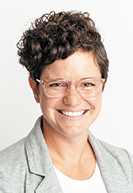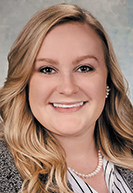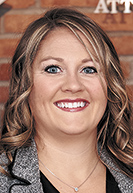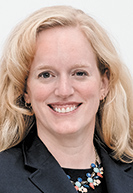Subscriber Benefit
As a subscriber you can listen to articles at work, in the car, or while you work out. Subscribe NowFresh out of law school and looking to pivot from the classroom into the role of a practicing lawyer, hundreds of young attorneys have gone through the Indiana State Bar Association’s Mentor Match program since it launched in November 2010.

Sara McClammer was in her first year of practice when she entered the program.
“You don’t really know how to practice at that point,” McClammer, founder, director of operations and general counsel at Scout Advocacy LLC, said.
Through the Mentor Match program, new lawyers are matched with experienced mentors who assist them with law practice management, effective client representation and career development, and general guidance. The program also offer the opportunity to earn free CLE, ethics and/or applied professionalism credits.
Rebecca Smith, ISBA’s section and committee liaison, said 378 pairs have completed the ISBA Mentor Match program since its 2010 inception.
ISBA temporarily put the program on pause in January to update it, but the association still plans to offer a mentoring program in the future, ISBA Communication Director Kelsey Singh said.
The updated program might be called something new, and it might look a little different in terms of curriculum, Singh said.
“But we are really committed to offering mentorship opportunities to people,” she said.
What it offers
Mentor Match has been a popular program due in part to its curriculum, Singh said. Its webpage on the ISBA website links to a number of worksheets pertaining to legal topics including lawyer compensation, pro bono work, ethical problems for lawyers, client development and client relations.
The program usually takes about eight months to a year to complete, according to Smith.

A “young attorney” qualified to be matched with a mentor is someone who has practiced for 10 years or less.
One such attorney is Natalie Williamson, now with Sprunger & Sprunger.
Williamson started as a mentee in November 2022 and completed the Mentor Match program in October. Abbee Vetter, also of Sprunger & Sprunger, was her mentor.
Williamson took a different path than most other young attorneys, having previously been a full-time teacher while attending law school part time at night. She now primarily practices family and criminal law.
Williamson said she thinks Mentor Match — and mentoring programs, in general — are incredibly valuable, particularly for attorneys working in smaller offices and rural communities. It’s important, she said, to have access to an experienced attorney, get feedback from them and be able to ask questions. Also, the program taught her a lot about what ISBA has to offer its members.

Four mentees and three mentors from Sprunger & Sprunger took part in the ISBA Mentor Match program, Vetter said.
Even though she served as Williamson’s mentor, she had her own lessons to learn, given that she had never been in private practice before joining the firm in 2021.
“When I went into private practice, it felt like a large learning curve to me,” Vetter said.
The Mentor Match training focuses not only on spotting issues, Vetter said, but also on thinking outside the box to find solutions for clients. She worked with Williamson across the board on legal issues and assisted her in every aspect of being an attorney.
One of the things about Mentor Match that Vetter liked was that the program used materials from multiple attorneys from different areas of law from Indiana and across the country.
“This was sort of like a brainstorming session, but on paper,” she said.
Vetter said she would love to be a mentor again.
“Even as a mentor, it was a nice refresher,” she said.
Being a mentor

Elizabeth Berg, Fidelity National Finance’s vice president for education and training, served as a mentor to McClammer. Back then she was an attorney with Goodin Abernathy LLP.
“Like every great mentor program, it’s up to the participants and what they want to put into it,” Berg said.
Berg had been practicing law about 10 years when she became a mentor in the ISBA program. She herself did not have a mentor when she began practicing.
But Berg said it’s good to have someone outside the firm whom a young attorney can talk to if they need advice or a sounding board. When attorneys are first out of law school, she said, sometimes they don’t have a gauge of the real world as far as how the practice of law actually works.
McClammer, a 2011 graduate of Indiana University Robert H. McKinney School of Law, said Berg would share knowledge from her experiences, which was helpful for her as a young attorney. Like Berg, McClammer said mentoring relationships outside a firm are really important and allow young attorneys to ask questions.
The two remain friends today.
What’s next?
With Mentor Match’s pause, Smith said ISBA wants to reevaluate the program and look at its curriculum and criteria for matching people, geography and interests.
The ISBA doesn’t have a timeline for relaunching a mentoring program, Smith continued, but she added that it could be within the next year.
In addition to Williamson and Vetter recently completing the Mentor Match program, Smith said there were three other mentor/mentee pairs who were working through the program in the last year.•
Please enable JavaScript to view this content.
